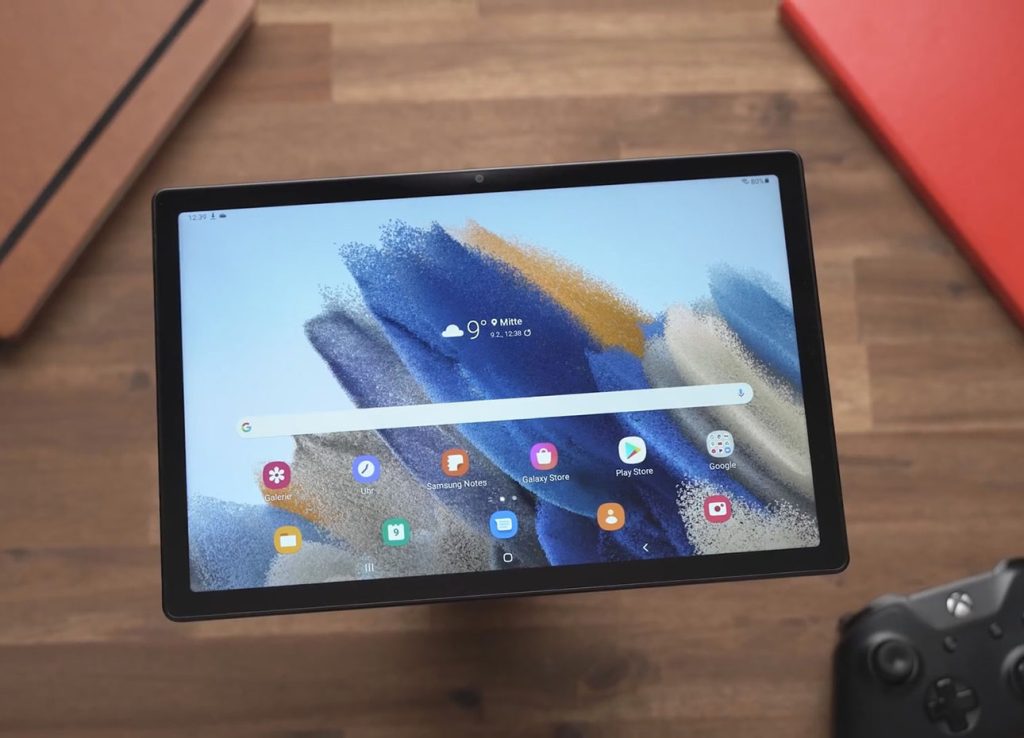
Budget-Friendly Roaming: Practical Ways to Cut Down on Phone Expenses Abroad
International roaming charges represent the fees imposed by telecommunications companies when a mobile device is used outside its home network coverage area. These charges apply to services like calls, text messages, and data usage while traveling abroad. The impact of these charges on phone bills can be substantial, often leading to unexpectedly high expenses for travelers.
When travelers use their phones overseas without an international roaming plan, the costs can escalate rapidly. Data usage, in particular, can result in exorbitant bills due to the high rates charged by network providers in foreign countries. Even simple actions like sending text messages or making brief calls can accumulate charges that significantly impact the overall phone bill.
Effectively managing these expenses is crucial for travelers. Without proper oversight, international roaming charges can become a financial burden, affecting the overall travel budget. It’s essential for travelers to understand how these charges are incurred and the various strategies available to minimize or eliminate them. By taking proactive steps to manage roaming costs, travelers can enjoy their trips without the stress of unexpectedly high phone bills awaiting them upon their return. Efficient management of international roaming expenses ensures a smoother travel experience and prevents financial strain caused by hefty phone charges.
What is International Roaming?
International roaming is a service provided by mobile network operators that allows users to stay connected on their phones while traveling outside their home country. It enables users to access cellular networks in foreign countries, enabling them to make calls, send text messages, and use data services using their home network’s services.
How International Roaming Works:
When a mobile phone user travels abroad and switches on their device, it seeks connection with local cellular networks. In the absence of their home network, the phone connects to partner networks or local networks through roaming agreements established between telecom operators. This connectivity allows users to make and receive calls, send texts, and access mobile data as if they were in their home country.
Different Charges Associated with Roaming:
Data Charges: These charges apply to the use of mobile data while abroad. They are usually the most expensive component of roaming charges due to higher rates imposed by foreign networks.
Call Charges: Roaming incurs charges for both incoming and outgoing calls. These charges can significantly exceed local call rates.
Text Messaging Charges: Similar to calls, sending and receiving text messages (SMS) while roaming incur additional fees.
Common Misconceptions about Roaming Fees:
Unlimited Roaming: Some users mistakenly assume their regular mobile plan includes unlimited roaming. However, most plans have limitations and often involve higher charges when used abroad.
Wi-Fi Usage and Roaming: Users might assume using Wi-Fi abroad means avoiding roaming charges entirely. However, Wi-Fi usage does not prevent mobile data charges if the device accesses the internet through a cellular network.
Roaming Costs in Border Regions: Travelers near borders may connect to a foreign network inadvertently, leading to roaming charges even when they haven’t crossed the border.

Understanding these aspects of international roaming helps travelers make informed decisions about using their phones abroad. Being aware of potential charges and misconceptions allows them to plan and manage their usage more effectively, reducing the risk of unexpectedly high phone bills upon their return.
Check Your Carrier’s International Plans:
Many mobile carriers offer specific international plans designed to minimize roaming charges for travelers. These plans vary in terms of coverage, data allotment, call rates, and validity periods. Some carriers provide temporary add-ons to existing plans, offering reduced rates for voice, text, and data usage in select countries. Others may offer separate packages for specific regions or global coverage.
When choosing the most suitable plan, consider:
Destination Coverage: Ensure your destination country is included in the carrier’s international plan. Some carriers might offer better rates for popular tourist destinations.
Data and Call Allowances: Evaluate your typical usage to select a plan that offers sufficient data and call allowances for your needs during the trip.
Duration and Costs: Assess the plan’s validity period and associated costs to ensure it aligns with the duration of your travel and budget.
Switch to Local SIM Cards or International SIMs:
Local SIM Cards:
Advantages: Local SIM cards often offer cheaper rates for calls, texts, and data within the country. They provide a local phone number and are easily available at airports, convenience stores, or carrier shops.
Considerations: Check compatibility with your device’s network bands. You’ll have a different phone number, which might affect receiving calls or texts from your home country.
International SIMs:
Advantages: These SIM cards operate across multiple countries, eliminating the need to switch SIMs when crossing borders. They often come with competitive rates for various destinations.
Considerations: Costs and coverage may vary based on the provider and countries covered. Some international SIMs require an unlocked phone.
Purchasing and Activating Local SIM Cards:
Visit a local carrier store, airport kiosk, or authorized retailer to purchase a SIM card.
Follow the instructions provided to activate the SIM, which typically involves inserting it into your phone and following the activation steps.
Utilize Wi-Fi and Messaging Apps:
Benefits of Wi-Fi Usage:
Wi-Fi allows free or low-cost internet access, helping avoid data roaming charges.
It provides high-speed internet for browsing, emails, and app usage without additional charges.
Popular Messaging Apps for Free Communication:
WhatsApp: Offers free messaging, voice, and video calls over Wi-Fi.
Telegram: Similar to WhatsApp, providing free messaging and calls.
Signal: Known for its robust privacy features, it offers free messaging and calls over Wi-Fi.
Utilizing Wi-Fi networks and messaging apps can significantly reduce reliance on cellular networks and minimize data usage while abroad, contributing to substantial savings on roaming charges.
Disabling Data Roaming on Smartphones:
Android Devices:
Open “Settings,” select “Network & Internet,” then “Mobile network.”
Turn off “Data roaming” or set it to “Off” to disable data when abroad.
iOS Devices:
Go to “Settings,” tap on “Cellular” or “Mobile Data.”
Disable “Data Roaming” to prevent using mobile data while traveling.

Importance of Turning Off Background Apps:
Background apps consume data for updates and notifications, even when not actively used. Disabling them prevents unnecessary data consumption and roaming charges.
Download Maps and Entertainment Offline:
Downloading Maps:
Use Google Maps or other map apps to download offline maps of your destination.
Search for the area and select “Download” to save the map for offline use without using data.
Downloading Entertainment for Offline Use:
For music: Use apps like Spotify, Apple Music, or YouTube Music to download playlists or songs for offline listening.
For videos: Services like Netflix, Amazon Prime Video, or YouTube offer options to download videos for offline viewing.
Benefits of Offline Content:
Access to maps without internet: Navigate and explore without using data.
Entertainment during flights or areas with poor connectivity: Enjoy music, movies, or shows without relying on internet access.
Keep an Eye on Usage:
Monitoring Data, Call, and Text Usage:
Check your carrier’s app or log in to your account online to monitor usage details.
Set up usage alerts or notifications to track your spending and usage limits.
Tips to Avoid Unexpected Charges:
Use Wi-Fi whenever possible to conserve mobile data.
Disable automatic updates for apps to prevent unintentional data usage.
Communicate via messaging apps over Wi-Fi instead of SMS or calls.
Being vigilant about data roaming settings, background app usage, and having offline access to maps and entertainment helps in effectively managing expenses. Additionally, regularly monitoring usage and staying within set limits prevents unexpected charges, ensuring a smooth and budget-friendly travel experience.
Best Practices and Precautions:
Additional Tips for Managing Expenses Efficiently:
Utilize Roaming Add-ons: Explore your carrier’s roaming add-ons or travel packages tailored to your destination to minimize costs.
Schedule Updates and Syncs: Set app updates and data syncs to occur over Wi-Fi before your trip to avoid using mobile data abroad.
Disable Voicemail: Turn off voicemail to avoid potential charges for missed calls while abroad.
Consider Temporary SIMs: In case of extended stays, consider temporary local SIMs for cost-effective connectivity.
Precautions to Avoid Bill Shocks Post-Travel:
Review Bills Promptly: Check your phone bills immediately after returning to ensure accuracy and address any unexpected charges promptly.
Contact Customer Service: If you notice discrepancies or excessive charges, contact your carrier’s customer service to seek clarification or dispute incorrect charges.
Keep Records: Maintain records of communications with the carrier, such as reference numbers or emails, when discussing billing issues.
By implementing the discussed strategies, travelers can significantly reduce the financial burden associated with roaming expenses. Summarizing the key points:
Choose the Right Plan: Opt for suitable international plans or alternatives like local SIMs or Wi-Fi to minimize roaming costs.
Utilize Offline Options: Download maps, entertainment, and content before traveling for offline access.
Monitor Usage: Keep track of data, call, and text usage to avoid exceeding limits and incurring extra charges.
Post-Travel Vigilance: Review bills promptly and contact your carrier if you notice any discrepancies.
Encouraging travelers to plan ahead, be vigilant about usage, and explore cost-effective options can ensure a more enjoyable and financially savvy travel experience. Efficient management of mobile expenses while abroad enables travelers to stay connected without worrying about hefty bills awaiting their return.
